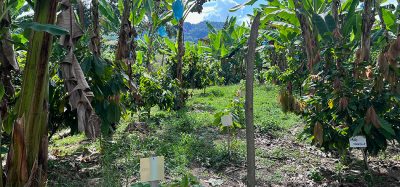General Mills commits to 100 percent renewable electricity globally by 2030
- Like
- Digg
- Del
- Tumblr
- VKontakte
- Buffer
- Love This
- Odnoklassniki
- Meneame
- Blogger
- Amazon
- Yahoo Mail
- Gmail
- AOL
- Newsvine
- HackerNews
- Evernote
- MySpace
- Mail.ru
- Viadeo
- Line
- Comments
- Yummly
- SMS
- Viber
- Telegram
- Subscribe
- Skype
- Facebook Messenger
- Kakao
- LiveJournal
- Yammer
- Edgar
- Fintel
- Mix
- Instapaper
- Copy Link
Posted: 28 April 2020 | Sam Mehmet (New Food) | No comments yet
To achieve this goal, the company is investing in renewable energy efforts to support the company’s environmental objectives.


General Mills, multinational manufacturer and marketer of branded consumer foods, has set a goal of 100 percent renewable electricity by 2030 as part of the RE100 global corporate initiative.
Examples of investments to achieve this goal include two large-scale wind farms which will produce renewable energy credits (RECs), and anaerobic digestion (which captures and uses methane from waste to generate electricity). Internationally, the company is investigating renewable projects where it has energy-intensive operations.
“Signing on to a movement like RE100 extends our commitment to renewable electricity globally, across our supply chain,” said John Church, Chief Supply Chain Officer at General Mills. “We know we’re able to drive more widespread action and impact when we make bold commitments. And we’re proud to be among those corporations that are taking the initiative to use scale for good because together, we can secure more measurable and meaningful results.”
In 2015, General Mills was reportedly the first company across any sector to publish a goal approved by the Science Based Targets initiative (SBTi) to reduce absolute greenhouse gas emissions across the company’s full value chain (Scopes one, two and three) by 28 percent by 2025. Through 2019, General Mills has reduced the greenhouse gas emissions of its extended value chain by 14 percent compared to its 2010 baseline.
Renewable projects underway thus far include:
- In North America, the company has a 1.6 megawatt generator fuelled by the anaerobic biodigester at its Murfreesboro plant in Tennessee. Self-renewing bacteria in the biodigester convert plant process wastewater from its yoghurt and dough production into biogas fuel. Power and heat from the generator are fed directly back into the yoghurt processing facility to reduce its annual grid power and natural gas purchases by up to 20 percent
- In South America, the company has a 335 kilowatt biogas regeneration plant at its Paranavai Yoki location. This plant is one of the largest manufacturing plants in Brazil where electric power is produced from biogas generated by the site’s wastewater treatment system. The power is used by the plant with any excess sent to the local electric utility, reducing the company’s power spend by 30 percent
- In Europe, the company has a 195 kilowatt capacity biogas regeneration plant at its Arras, France Häagen-Dazs production facility. The plant uses electric power produced from generators that are fuelled by renewable biogas from the site’s process wastewater treatment system. When the plant doesn’t use it, the power generated from the biogas is sold to the local utility grid, while heat in the form of hot water is recovered to reduce natural gas consumption at the ice cream plant
- In 2017, General Mills signed a 15-year virtual power purchase agreement with RES Americas for 100 megawatts of the Cactus Flats wind project in Concho County, Texas. In fiscal 2019, this project generated RECs equivalent to about one third of electricity usage at General Mills owned manufacturing locations in the US and in 2019, General Mills signed another 15-year power purchase agreement with Roaring Fork Wind, LLC, a joint venture partnership between RES and Steelhead Americas, for 200 megawatts of its Maverick Creek wind project in central Texas. The wind farm will produce RECs for General Mills that, together with Cactus Flats will equal 100 percent of the electricity used annually at the company’s owned US facilities.









